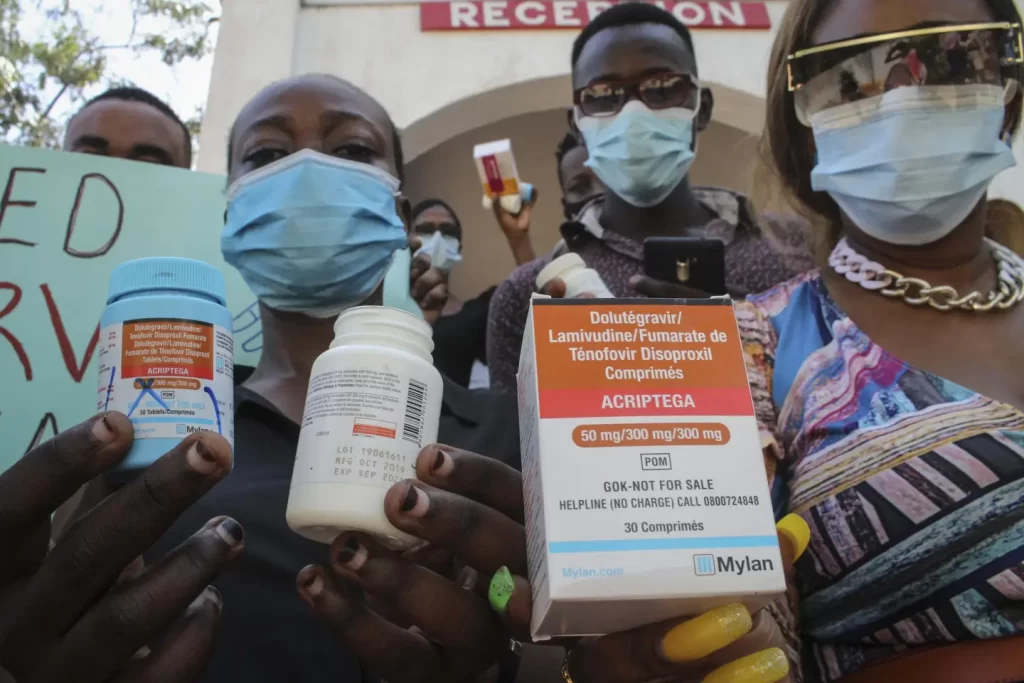Local HIV Patients Struggle as Kenya Ships Life-Saving Drugs Abroad

Just two months ago, thousands of people living with HIV in Kenya were grappling with a severe shortage of first-line antiretroviral (ARV) drugs.
Many patients, desperate to stretch dwindling supplies, resorted to rationing their medication, altering dosages, and risking treatment failure.
Ironically, as this crisis unfolded, a stockpile of ARVs worth $34 million (Sh4.4 billion) sat idle in a Nairobi warehouse. Meant for nationwide distribution in January, the consignment included essential medications for treating co-infections of HIV and tuberculosis, and for preventing mother-to-child transmission. Yet, due to delayed funding, the drugs remained undelivered for over a year.
“What is the point of having these drugs in-country if those who need them can’t access them?” asked Nelson Otwoma, director of the National Empowerment Network of People Living with HIV/AIDS in Kenya. “Why are we waiting for money while lives hang in the balance?” Mr Otwoma.

The government blamed the delay on the lingering effects of a 90-day foreign aid freeze imposed by former U.S. President Donald Trump.
Although Sh3.88 billion worth of ARVs were available in-country, just Sh1.2 billion was needed for their distribution.
Amid the unfolding crisis, government agencies such as the Ministry of Health and the National Syndemic Diseases Control Council floated the idea of supporting local pharmaceutical production. However, no concrete steps were taken to engage Universal Corporation Limited (UCL), a Kenyan manufacturer of ARVs.
Ironically, UCL recently made international headlines after exporting 72,000 doses of HIV medication to Mozambique. The Global Fund to Fight AIDS, Tuberculosis and Malaria hailed the move as a historic milestone: the first procurement of a first-line HIV treatment manufactured in Africa.
Mozambique’s Health Minister Ussene Hilario Isse praised the shipment, calling it “a breakthrough for the continent.”
“Africa’s growing capacity to locally produce lifesaving medications marks a strategic shift, reducing dependence on imports and enhancing our ability to respond swiftly to public health challenges,” The Minister said.
Back in Kenya, however, this success has sparked frustration and introspection.
“The sad reality is that Kenya is exporting hope while denying it at home,” said a health sector insider familiar with the matter.
UCL Managing Director Perviz Dhanani shared a similar sentiment:
“We have one million patients on HIV treatment, and although we have a WHO-prequalified product available and locally manufactured, it is unfortunate that not a single one of these patients in need is being treated with our medication. Everything is imported from outside the continent.”
“The government has never procured from us, and we do not have agreements with the government regarding the supply of HIV drugs for domestic use,” he said. “We have sufficient capacity to supply the Kenyan market as well as several export markets,” he added.
While Nascop Chief Executive Officer Dr Andrew Mulwa dismissed the March shortage as untrue, he acknowledged that UCL had supplied dolutegravir to Kenya once, in 2022. He explained that the recent export to Mozambique occurred through the Global Fund.
“The government is okay with the exports. There is nothing wrong, because they can manufacture for the country and the region,” said Dr Mulwa.
By Kimani Mwangi










